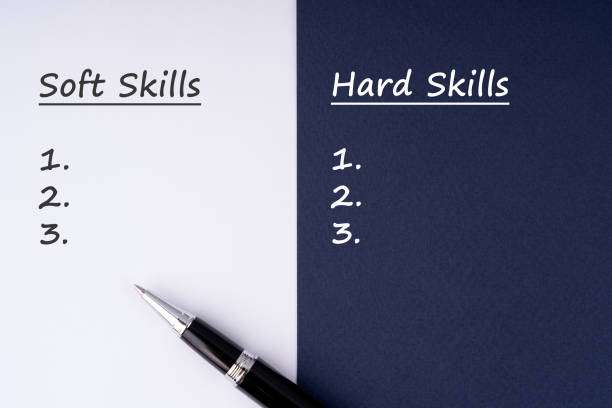7 In-Demand Tech Skills to Learn Without Coding
Everyone understands how vital programming is in the tech business; therefore, it may surprise you that there are numerous tech Skills to Learn Without Coding that will give you a profitable job in profitable industries such as data science, marketing, and product management. Indeed, many non-coding IT jobs are in high demand. Data science, for example, has a 36% job outlook, according to the Bureau of Labor Statistics. Developing professional abilities in marketing, design, or cyber security can help you get high-paying IT positions that don’t involve coding. If you are interested in knowing the tech skills to learn without coding, you have come to the right website. We will go over all of the finest tech skills to learn without coding, as well as the abilities you will need to succeed. Best Tech Skills to Learn Without Coding The top tech skills to learn without coding pay well because the necessary abilities are in high demand. While some of these skills require extensive experience or a relevant bachelor’s degree, others can be obtained by enrolling in a data science program or a tech sales boot camp such as SV Academy. 1. Product Manager A product manager is in charge of the design, strategy, and implementation of the products that the organization develops. Their role is more focused on providing value-driven results for consumers. Product managers curate strategies and identify techniques for meeting functional needs. 2. IT Project Manager Project managers oversee independent projects in IT services firms and are in charge of the entire project management process, from idea inception to execution. They collaborate closely with various team members, maintain effective coordination, and bring together team members’ contributions to the project. 3. User Interface (UI) Designer Have you ever left a website or stopped using a product because you didn’t think it was appealing enough? As a User Interface designer, you must have an eye for good design and expertise in creating a beautiful interface that makes it easy for the target audience to utilize the product/website. Your job includes developing a seamless, clear, and simple user interface. 4. UX Designer (User Experience Designer) User experience and user interface specialists collaborate to guarantee that users have a seamless experience when using the app or website. A User Experience Designer, who combines marketing, technology, and user psychology, strives to gather information on the website/product’s experience. Their role in technology is to identify holes and ways to improve it and then implement those modifications on the website/product. Their daily tasks include user research, information architecture, data-driven design, and wireframing and prototyping. 5. Data Analyst Data is a strong source, providing firms with a significant competitive advantage. A data analyst examines, models, and translates data into an understandable form. They extract useful insights from past data, assess current data, and help in anticipating future patterns. To attain better outcomes, you must be proficient in mathematics and have experience with data visualization and analytics technologies such as Tableau, Excel, Fusion, and Data Wrapper. 6. Web Analysis Specialist A Web Analysis Specialist’s responsibilities include tracking and assessing the company’s site traffic, email click-through rates, social media participation, and blog traffic. A Web Analysis Specialist develops plans and procedures for increasing the company’s online visibility and converting leads. The job necessitates keen analytical abilities. 7. AI operators It is the newest and most in-demand skill these days. As an AI operator, you will become a vital actor in the field of artificial intelligence. Your responsibilities include maintaining and optimizing AI systems and algorithms to generate relevant insights and outcomes. You collaborate directly with data scientists and engineers to build AI models, assess their performance, and optimize them for optimal efficiency. With a sharp eye for patterns and trends, you assist organizations in leveraging AI technologies to make better decisions, automate processes, and provide superior consumer experiences. What Are the Highest-Paying Tech Jobs That Don’t Require Coding? These jobs can help you earn six figures, especially if you have a few years of expertise in the industry. Other high-paying occupations in technology without coding are: Project manager Security Architect System administrator Business analyst Product marketing manager FAQS Do you need to understand how to code for cybersecurity? Many cyber security occupations, particularly entry-level positions, may not require coding knowledge. While some career pathways may include knowledge of languages such as Python or JavaScript, many cybersecurity positions do not require programming skills. Is coding required for user experience design? No, coding is not required for UX design; nevertheless, knowledge of front-end languages may help you better grasp the software development process. This can help you work more effectively and produce better designs. Do tech jobs pay well? Many tech professions pay well and offer good employee benefits. The technology industry is continually expanding and diversifying, exacerbating the need for more technically competent workers. Many technology careers pay significantly above the national average. Which computer majors do not require coding? Graphic design, systems management, business administration, and business management are all majors that can help you succeed in the computer industry without requiring you to code. If you do not want to focus your schooling on coding, a degree in data science or cyber security is a good option. Conclusion The list above includes tech skills to learn without coding. You can also pursue a profession as a technical recruiter, system administrator, network administrator, business analyst, and so on. So, today, no one can stop you from joining the ever-changing and modern information technology world! Select the option that most interests you and explore.
7 In-Demand Tech Skills to Learn Without Coding Read More »






